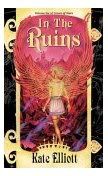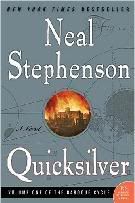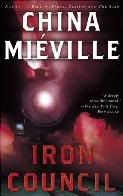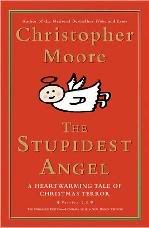Now, when I first set out to do a blog entry dedicated to notoriously bad films that I enjoyed watching, I realized there would be a little ambiguity to the purpose of my entry. Would it be about films that were notoriously bad, and that I knew were bad, but liked anyway? Or would it be about films that were soundly panned by critics, but that I thought were actually good? Well, I've decided to do both. There are a lot of critically butchered movies that I've loved, and have helped to influence the way I look at film, but there have also been films that tickle my funnybone even as I acknowledge that they make no sense. Some of my ramblings may also contain movie spoilers - so you've been warned.
If you have "wonderfully bad movies" that you think I've missed, feel free to contribute in the Comments section.
Forever Young, 1992, starring Mel Gibson, Jamie Lee Curtis, and Elijah Wood.
I just rented this movie the other day, because as a burgeoning sci-fi devotee I thought the premise sounded cool. Mel plays Daniel McCormick, a daredevil test pilot in 1939 whose girlfriend Helen falls into a coma following a horrible accident. Daniel can't stand to watch her die, so he volunteers to be a guinea pig for his best friend Harry's top-secret cryogenics experiment. He plans to sleep in suspended animation for a year, presumably so that when he wakes up his lady love will be either better or dead, so he won't have to go through the agonized process of waiting.
Unfortunately, Harry dies in an accident two months after Daniel's put in the deep-freeze, World War II starts, and the experiment is forgotten. The cool-looking cryogenic coffin containing the frosty pilot is ironically mislabeled as a water heater and buried in storage until 1992, when two boys (Elijah Wood and Robert Hy Gorman) mess around with some of the wheels and gears and wake him up. Whoa! Culture shock!
First of all, there are HUGE plot holes in the story - like, how did the cryogenic tube remain fully powered and frozen for fifty years? And parts of the film just seemed superfluous. The wonderful Joe Morton is mentioned in top billing, but he has, like five minutes of screentime as a scientist who has discovered what's happened to Daniel and wants to find him for further scientific research. Or something. Anyhoo - it seems like they added his character at the last minute, when they realised, "Oh crap! We need a character to care about Daniel, because all the other ones are dead!" So in comes Morton, who's all brassy and in-your-face about finding Daniel RIGHT NOW because he's a freaking MIRACLE OF SCIENCE, but is instantly placated by a set of journals by the late Harry Finley.
Now, you may ask, why did I like this movie? Well - for one thing, Mel Gibson at 36 is, as the teenagers might say, OMG DAMN HAWT. He's very easy to watch in this movie, even when the wonders of movie makeup transform him into an 85-year-old at the end when his natural age catches up with him. Sure, at 85 he's not exactly George Clooney, but if I was a woman of lesser morals, and he had tons of money, I'd consider shacking up with him. Back on topic, he had a lot of good scenes - like the Essential Scene Where the Two Adult Leads Have To Kiss, which ended up being a protacted make-out session with Jamie Lee Curtis which ends with them apologising, realizing that Jamie Lee's character already has a boyfriend. Oh! And the Gentlemanly Scum-Ass-Kicking Scene, where Mel proceeds to rescue Jamie Lee from an abusive former boyfriend and punch him several times in the face. Gentlemanly Scum-Ass-Kicking Scenes always make me feel warm and fuzzy inside.
Plus, after some research, I found out the script was written by none other than JJ Abrams, the same JJ Abrams who created
Alias and
Lost. Wow. Dude likes his sci-fi.
The Faculty, 1998, starring Elijah Wood, Josh Hartnett, and about a million other ridiculously famous people.
This movie, on the surface, is just another silly sci-fi horror film about body-snatching slug-parasite aliens who try to take over the world, one small football-town at a time. However, this movie has attained a bit of a cult status because of all the famous people who turned up to be in this film, even if only for a few minutes.
First off, it's directed by Robert Rodriguez - you know, Robert "Sin City", "Spy Kids", "El Mariachi" Rodriguez. The story is hilarious, but it's sometimes a problem to decide whether it's being stupid on purpose, or just to be campy, but it's directed with flair.
Elijah Wood's in it, as a bullied photographer teen who can't seem spend a day at school without having the jock-thugs bash his nuts into the flagpole. He saves the day by eliminating the Queen alien, who was mascarading as twee Southern new girl Marybeth Louise Hutchinson.
Josh Hartnett's in it, as the school's resident drug-dealer and contraband salesman who has to repeat the 12th grade, not because he's not smart (because he is), but because he
just doesn't try hard enough. Also, he has a meth lab to run. Helps save the day when he discovers his homemade narcotics make the aliens wig out.
Salma Hayek's in it, for about five minutes, as the cold-suffering school nurse who gets bugged by a parasite.
The wonderful Jon Stewart is in it, as the science teacher who, when he attacks our heroes in an alien-manipulated rage, is incapacitated when he gets stabbed in the eye with a pen full of home-made crack. Returns for the end credits wearing an eyepatch.
Robert Patrick (
Terminator 2) stars as the foulmouthed football coach who is the first to be alien-ed. Stabs Bebe Neuwirth through the hand with a pencil, then helps to enslave the rest of the student body. The jock-who-just-wants-to-be-smart, Stan (Shawn Hatosy) is clued in to coach's otherworldiness when he announces he's quitting the football team right before the big game, and the alien-coach responds in a new-agey, hippie-dippie fashion by giving him permission to go "find himself" and "work out his problems".
Bebe Neuwirth is the school's miserly principal. Not very popular - she's attacked by two members of the faculty, both of whom say "I've always wanted to do that" before they stab her with a pencil/pair of shears. She, alien-ed, gets shot in the head, comes back to life, gets hit by a whole jar full of narcotics and dissolves into dust.
Famke Janssen (
X-Men's Jean Grey) is the mousy English teacher whose parasite alien master goes all
Extreme Makeover on her ass, turning her from the shy prof easily cowed by Josh Hartnett's taunts to a super-sexy, super-foul-mouthed bitch queen. She ends up cured in the end, and promptly goes back to being mousy.
Piper Laurie, Usher "Yeah! Yeah!" Raymond, and Clea DuVall also star. Wow - this movie was fun to watch. It wasn't just the insane list of celebrities who show up for ten minutes to get iced, or the plot-twist that Hartnett's drugs kill the aliens so the teen group of heroes have to regularly snort the stuff to prove they're human, and spend the latter half of the movie high as kites. Or the fact that all the characters fit into a precise niche (the outcast loner girl suspected of being a lesbian, the jock-who-just-wants-to-be smart, the bullied nerd, etc.). It was just plain, campy fun. I can only hope
Snakes on a Plane will be as entertaining.
Hook, 1991, Robin Williams, Julia Roberts, Dustin Hoffman.
This was a film that was panned (if you'll pardon the pun) as being one of Spielburg's worst movies, but a film that I adored and helped influence my imagination as a child. I love this film - not in the so-bad-it's-funny love, but the I-genuinely-think-it's-brilliant love. This is one of those films that I could watch a hundred times over without getting board of it.
In a continuation of the "Peter Pan" story - Robin Williams is Peter Panning, a cut-throat lawyer with a fear of heights who's indifferent to his family. He, his wife and kids head off to Britain to visit the greatly-aged Aunt Wendy (Maggie Smith), yes,
that Wendy, who became a champion of orphans - including Peter himself, who can't remember anything before the age of twelve. However, after going to a party celebrating the dedication of a children's hospital wing to the woman, Peter comes back to find Wendy's house ransacked, servants hysterical, and his children missing - with a note signed by a certain Captain James Hook.
Wendy reveals to Peter that he is fact Peter Pan, high-flying-happy-thought-holding-green-leotard-wearing Peter Pan, who has forgotten his mythical past as a result of growing up. Peter, justifiably, believes Wendy is insane, but Tinkerbell (Julia Roberts) shows up soon after to drag him back to Neverland to rescue his children. Hook (a fantastic Dustin Hoffman), upon discovering that his fiesty enemy has been reduced to a paunchy, snide adult terrified of flying, is dissuaded from killing him straight off - it would hardly be satisfying. He gives Peter and Tinkerbell three days to get him back into shape, and during those days attempts to gain the affections of Peter's ignored son Jack.
The idea of Peter choosing to grow up (when he falls in love with his wife-to-be, Wendy's granddaughter Moira) was a wonderful idea, and I can think of no one who could have played the adult Pan better than Robin Williams. The society of Lost Boys was also highly entertaining, with "Pan" becoming the name of the leader - hence, mohawked Lost Boy Rufio (as in, "Rufi-OOOOOOOOOOOH!") treats Peter with contempt, maintaining that "I am the Pan!" There was magic and laughter and foodfights and fistfights and flying and Smee, there was a pirate baseball game (where an unlucky buckaneer gets shot for stealing second base), there was Peter's new Happy Thought (the birth of his son Jack), and finally,
finally, Tinkerbell gets the chance to reveal to Peter how much in love with him she was.
I could watch this movie a hundred times. I'll never grow up so much that I won't love this film.
So there you have it - three "Wonderfully Bad Films". I could add more, I suppose, but I don't want this post to be too long. Feel free to comment on your own choices, and I might make a new post extending the subject, later on.
 Aah, sweet relief. Comfort food. I'm not going to lie to you - part of this novel's high review is that, in comparison to the deadly boring Quicksilver, this is packed with action and good characters. The reason is doesn't get an A is mostly because of my forgetfulness. I haven't had the time to read the Crown of Stars series for at least a year, so jumping right into the penultimate volume left me with serious disorientation.
Aah, sweet relief. Comfort food. I'm not going to lie to you - part of this novel's high review is that, in comparison to the deadly boring Quicksilver, this is packed with action and good characters. The reason is doesn't get an A is mostly because of my forgetfulness. I haven't had the time to read the Crown of Stars series for at least a year, so jumping right into the penultimate volume left me with serious disorientation.

